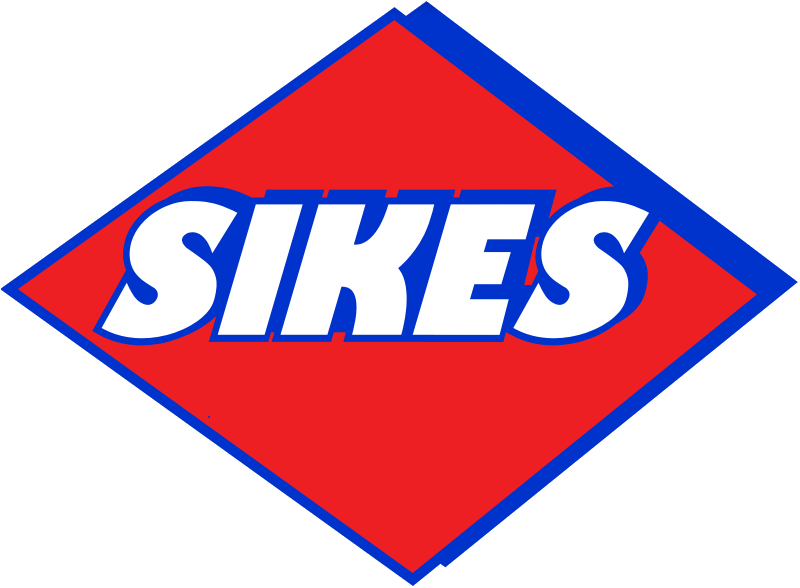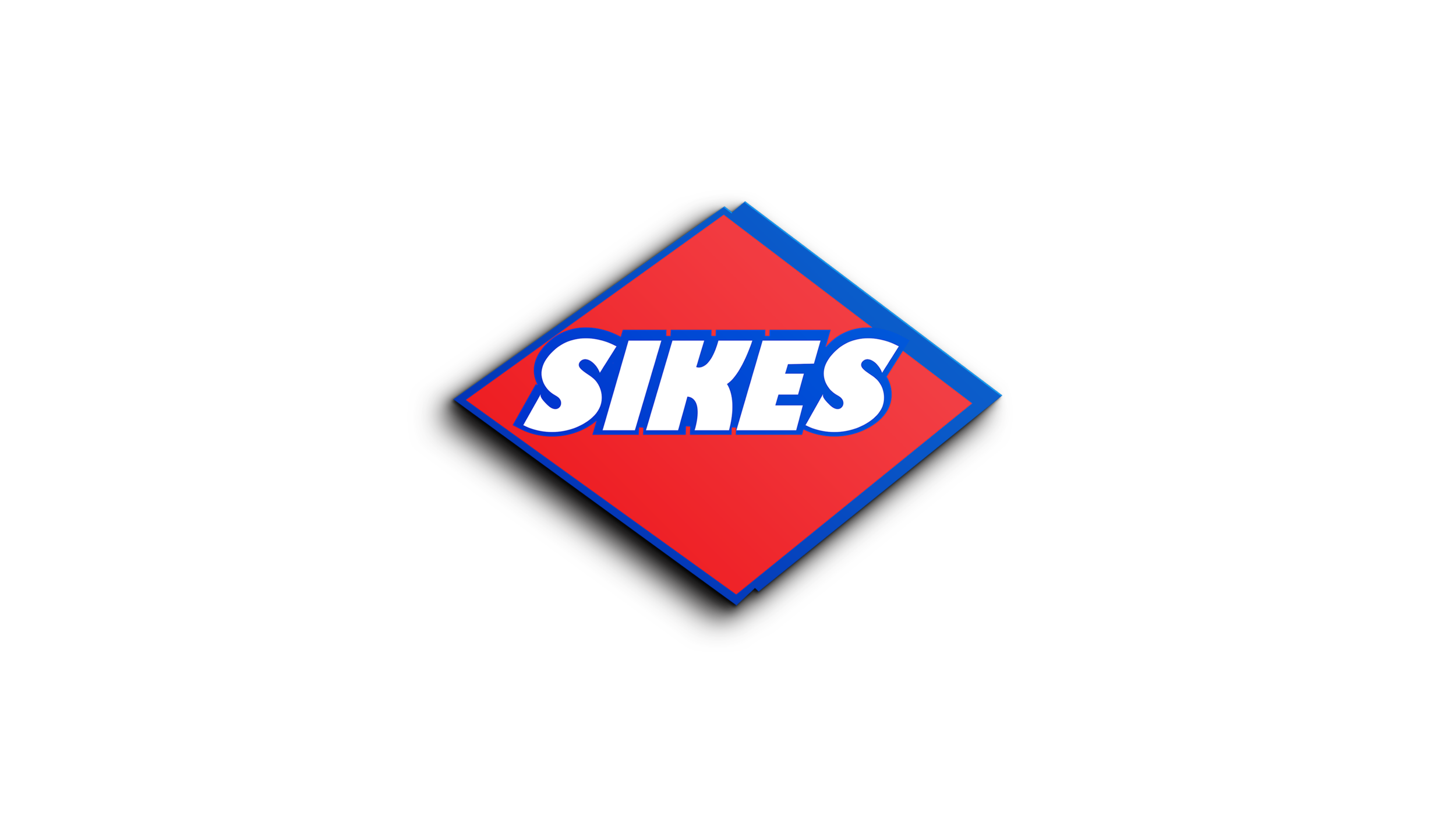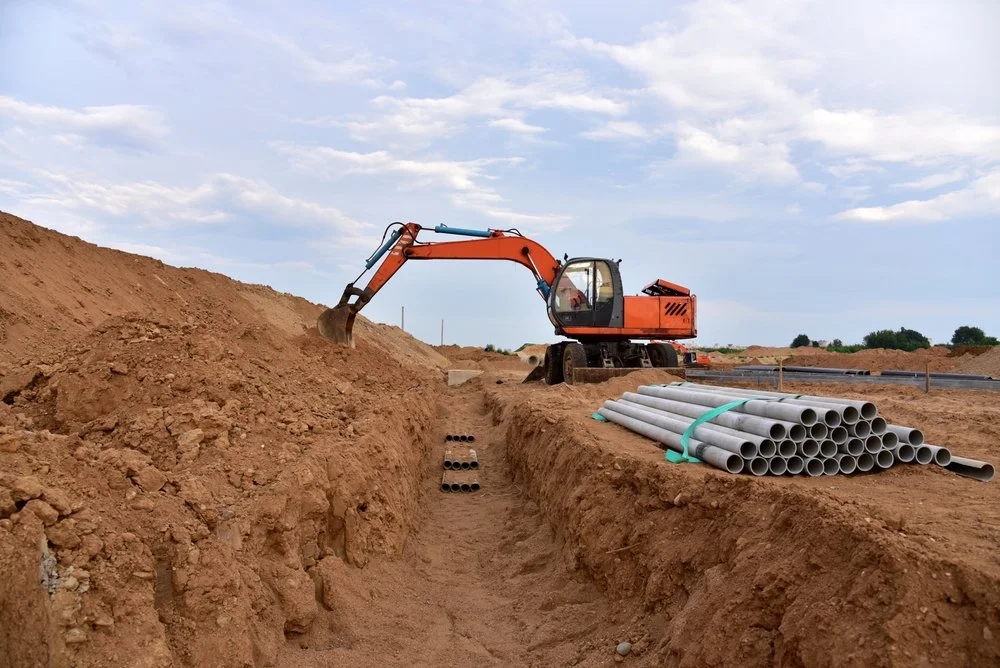EVERYTHING YOU NEED TO KNOW ABOUT CHOOSING THE BEST CONCRETE COMPANY IN PANAMA CITY, FL
Concrete is an incredibly versatile material that has become one of the most commonly used materials in a variety of sectors. It is an essential raw material for construction, and due to its durability and resistance, it is used to build structures like roads, bridges, and buildings. The quality and quantity of materials used in the making of concrete is crucial for achieving the best results. Concrete is typically made using cement with aggregates like sand and gravel, which act as binding agents.
Over the years, the concrete industry has seen significant changes in the types of products and services offered by the best concrete companies in the USA. With such growth and changes, it can be a bit challenging to find the right contractor for your concrete work.
If you're looking to start a construction project in Florida, choosing the right concrete company is crucial to the success of your project. From pouring a foundation to constructing a building, concrete is one of the most essential building materials in the industry. But how do you go about finding the right concrete company in Florida?
This comprehensive guide will provide you with everything you need to know about choosing the best concrete company for your project. We'll cover all the important aspects that you should consider, such as experience, qualifications, and pricing. With this information, you'll be able to make an informed decision and find the perfect company for your project.
Check the Concrete Company Credentials
Choosing an experienced and qualified concrete company is critical to ensuring the success of your project. With so many companies to choose from in Florida, it can be challenging to know which ones are reputable and reliable. One of the most important things to do when looking for a concrete company is to check their credentials.
Company Licensing
The first thing to check is the company's licensing. Every state has its own requirements for licensing and registration of contractors. You should check that the company you are considering has a valid license and is registered to work in Florida. A valid license is an indicator that the company has met certain standards for competence, safety, and professionalism.
Certifications
Certifications are also important. The best concrete companies have certifications from industry organizations that ensure they meet specific standards of quality and professionalism. These organizations include the American Concrete Institute (ACI), the National Ready Mixed Concrete Association (NRMCA), and the Concrete Sawing and Drilling Association (CSDA).
Insurance
In addition to licensing and certifications, it's important to check if the company has insurance. Insurance protects you and the company in case of accidents or damages that may occur during the project. The company should have liability insurance to cover damages to your property or injury to workers, and workers' compensation insurance to cover any injuries to employees on the job site.
Read Reviews and Testimonials
Another way to check the credentials of a concrete company is to read reviews and testimonials from previous clients. Reviews can be found on the company's website, social media, and other review websites. Look for reviews that highlight the company's professionalism, reliability, and quality of work.
Overall, checking the credentials of a concrete company is essential to ensure that they are qualified, competent, and professional. A company with the right credentials will provide you with the confidence that your project is in good hands and will be completed successfully. By taking the time to do your research and checking a company's credentials, you can avoid headaches and ensure that your project runs smoothly.
What Concrete Services do they Offer?
Once you have narrowed down your list of potential concrete companies to those with the proper credentials, it's time to consider the specific types of services they offer. Knowing the various types of concrete services available and their cost factors is important when making a final decision.
The most common concrete services include concrete pouring, concrete polishing, concrete cutting, concrete repair, and concrete resurfacing. Concrete pouring is the process of creating a new concrete surface, while concrete polishing involves grinding and polishing an existing surface to a smooth finish. Concrete companies may also include other services like concrete demolition, site grading, and excavation.
When considering cost factors, the size and scope of your project will be the most significant determinants of the final cost. Factors such as the type of concrete used, the complexity of the design, and the amount of labor involved can also affect the cost of your project. You should ask for a detailed cost estimate from each company you are considering to ensure you understand the cost and what is included.
Another important factor to consider is the quality of the work. A company that provides high-quality work will ensure that your concrete surface is durable, long-lasting, and functional. This is especially important for commercial projects where high foot traffic or heavy machinery use is common.
It's also essential to ensure that the concrete company you choose has experience with the specific type of project you have in mind. Some companies specialize in commercial projects, while others focus on residential projects. Some companies may have expertise in decorative concrete, while others may specialize in structural concrete. Finding a company that has experience with the type of project you have in mind will ensure that your project runs smoothly and efficiently.
Finally, communication is key. Make sure that the company you choose is easy to communicate with and that they provide clear and detailed information about the project. They should be able to answer any questions you may have and provide you with regular updates on the progress of the project.
Questions to Ask a Potential Concrete Company
Once you have narrowed down your list of potential concrete companies and determined the types of services they offer, it's time to start asking questions. Asking the right questions can help you determine if a company is a good fit for your project and can help you avoid costly mistakes. Here are some essential questions to ask when considering a potential concrete company:
What experience do you have with this type of project?
It's essential to find a company that has experience with the type of project you have in mind. This will ensure that they understand the requirements, potential challenges, and can deliver high-quality work that meets your needs.
What is your process for completing a project?
Understanding the company's process for completing a project will give you a better idea of what to expect, the timeline, and potential challenges. This will help you plan and prepare for the project more effectively.
What is the timeline for the project?
It's important to know when the project will start and when it is expected to be completed. This will help you plan and prepare accordingly and ensure that the project runs smoothly.
What type of materials do you use?
The type of materials used in your project will have a significant impact on the quality, durability, and cost. Knowing what type of materials will be used will help you determine if it meets your requirements and budget.
Can you provide references or examples of past projects?
References or examples of past projects will give you a better idea of the company's quality of work, attention to detail, and customer service. It's important to ask for references from past clients and to check online reviews.
What is your pricing structure?
Understanding the pricing structure is important to avoid surprises and ensure that the project is within your budget. It's essential to ask for a detailed cost estimate that includes all aspects of the project, including materials, labor, and any potential additional fees.
Are you licensed and insured?
Choosing a licensed and insured company is critical to protecting yourself from liability and ensuring that the company has the necessary expertise and credentials to complete your project safely and effectively.
What is your warranty or guarantee policy?
Knowing the company's warranty or guarantee policy will give you peace of mind in case of any issues or defects with the project. It's important to ask for a written warranty or guarantee policy that outlines what is covered and for how long.
How do you communicate with clients during the project?
Clear and regular communication is crucial during a project to ensure that everyone is on the same page and to address any issues or concerns. Knowing how the company communicates with clients during a project will help you plan and prepare accordingly.
What is your policy for unexpected issues or changes during the project?
Unexpected issues or changes can arise during a project, and it's important to know how the company handles them. Knowing the policy for unexpected issues or changes will give you peace of mind and help you plan accordingly.
Choosing a concrete company for your project requires careful consideration, research, and asking the right questions. By asking these essential questions, you can determine if a company is a good fit for your project, ensure that the project is within your budget, and avoid costly mistakes. Take the time to do your research, ask questions, and choose a company that has the necessary experience, credentials, and reputation to deliver high-quality work that meets your needs.
What are the signs of a good contractor?
Hiring a good contractor is essential to ensure that your construction project runs smoothly and efficiently. But how do you know if a contractor is reliable, professional, and skilled? Here are some signs to look for:
Good Communication
A good contractor will have excellent communication skills and will keep you informed every step of the way. They will take the time to listen to your concerns, answer your questions, and provide updates on the progress of the project.
Experience
Experience is one of the most critical factors in determining a good contractor. Look for someone who has a proven track record in the industry and has completed similar projects to yours. They will have a better understanding of potential issues and how to handle them.
Licensing and Insurance
A good contractor will have all the necessary licenses and insurance to carry out your project. This will protect both you and the contractor in case of any accidents or issues.
Positive Reviews and Testimonials
Check the contractor's reviews and testimonials from previous clients. This will give you an idea of their level of customer service and workmanship. If they have a high rating and positive feedback, it's a good sign that they are a reputable contractor.
Attention to Detail
A good contractor will pay attention to even the smallest details to ensure that the project is completed to the highest standards. They will also be proactive in identifying any potential issues and resolving them before they become a problem.
Transparency
A good contractor will be transparent about their pricing, timeline, and scope of work. They will provide you with a detailed estimate and will not surprise you with any hidden fees or charges.
How to protect yourself from liability when hiring a contractor?
Hiring a contractor for your construction project can be a risky business, as there are many potential liabilities involved. Protecting yourself from these liabilities is crucial to ensure that you don't end up facing costly legal issues or damages. Here are some tips on how to protect yourself from liability when hiring a contractor:
Verify Licenses and Insurance: Before hiring a contractor, make sure to verify their licenses and insurance. This will help ensure that they are qualified and experienced in their field and will protect you in case of any accidents or damages.
Have a Written Contract: Having a written contract that outlines the scope of work, payment terms, and project timeline is essential. The contract should be reviewed and signed by both parties to ensure that everyone is on the same page and that there are no misunderstandings.
Insist on a Payment Schedule: An established payment schedule is important to avoid misunderstandings and payment disputes. The payment schedule should be tied to project milestones to ensure that the contractor is meeting their obligations.
Inspect the Work: Regular inspections of the work during the project will ensure that the contractor is meeting the required standards. This will also help catch any potential issues early on, avoiding costly repairs later.
Keep Records: Keep detailed records of all payments, receipts, and correspondence related to the project. This will help you in case of any disputes or issues that may arise in the future.
Obtain Permits: Make sure that all necessary permits and inspections are obtained before starting the project. This will ensure that the project complies with local laws and regulations, reducing the risk of any potential liabilities.
Protecting yourself from liability when hiring a contractor requires careful planning and attention to detail. By following these tips, you can minimize your risk and ensure that your construction project is completed to your satisfaction.
How do you negotiate a contractor price?
Negotiating a contractor's price can be a challenging task for many people. However, with the right preparation and approach, you can achieve a mutually beneficial agreement that works for both parties. Here are some tips on how to negotiate a contractor's price:
Research the Market
Before negotiating with a contractor, research the market to get an idea of the going rates for similar projects. This will give you an idea of what to expect and help you determine whether the contractor's price is reasonable.
Know Your Budget
Have a clear understanding of your budget and the maximum amount you are willing to pay for the project. This will help you stay focused and avoid overspending.
Ask for Detailed Estimates
Ask the contractor to provide a detailed estimate of the project, including labor, materials, and other costs. This will help you identify areas where you can negotiate or cut costs.
Consider the Contractor's Experience
A contractor with years of experience may charge more for their services, but their expertise may also save you money in the long run. Consider the contractor's experience and expertise when negotiating the price.
Be Willing to Compromise
Negotiating a price involves compromise from both parties. Be willing to compromise on certain aspects of the project, such as materials or timelines, to achieve a mutually beneficial agreement.
Don't Be Afraid to Walk Away
If the contractor's price is too high or if you can't agree on a fair price, don't be afraid to walk away. There are many contractors available, and you should not settle for a price that is beyond your budget.
Negotiating a contractor's price requires research, preparation, and a willingness to compromise. By following these tips, you can negotiate a fair price for your construction project while maintaining a positive relationship with your contractor.
Should you tell the contractor your budget?
One of the questions that often come up when hiring a contractor is whether you should tell them your budget. The answer is not always straightforward, as there are pros and cons to both disclosing and not disclosing your budget.
On one hand, disclosing your budget to the contractor can help you avoid wasting time and money on a project that is beyond your means. By letting the contractor know your budget upfront, they can provide a proposal that is tailored to your financial constraints. This can save you both time and money, as the contractor will be less likely to propose something that is too expensive or beyond your means.
On the other hand, disclosing your budget can also put you at a disadvantage when negotiating with the contractor. If the contractor knows your budget, they may be less likely to provide competitive bids or offer to do more work for the same price. They may also be more likely to propose materials or labor that are more expensive than what you need or want.
If you decide to disclose your budget to the contractor, it is important to be clear about your expectations and to stick to your budget. You should also ask the contractor to provide a detailed breakdown of the costs, including labor and materials, so that you can review it and ensure that you are not overspending.
If you choose not to disclose your budget, you can ask the contractor to provide different options or proposals that meet your general expectations. You can then review these proposals and choose the one that best meets your needs and budget.
Whether you disclose your budget to the contractor depends on your personal preferences and the specific project at hand. It is important to weigh the pros and cons of both options before making a decision and to communicate clearly with the contractor throughout the negotiation process.
Should I ask a Concrete Contractor for a quote or estimate?
If you are planning to undertake a concrete project, it is a good idea to ask a concrete contractor for a quote or estimate. This will allow you to get an idea of the cost of the project and help you make an informed decision about hiring a contractor.
A quote is an estimate of the cost of the project, based on the information you provide to the contractor. A good contractor will take the time to evaluate the project site, discuss your needs and preferences, and provide a written quote that outlines the cost of the project. This quote should include a breakdown of the costs for labor, materials, and any other expenses associated with the project.
Getting a quote from a concrete contractor can help you compare prices and services, and choose the best contractor for your needs. It can also help you avoid any surprises or unexpected expenses during the project, as the quote will provide you with a clear understanding of the costs involved.
Do concrete contractors give free quotes?
Yes, concrete contractors generally provide free quotes to their potential customers. In fact, providing a free quote is a common industry practice among contractors, as it allows customers to get an estimate of the cost of their project without any obligation to hire the contractor.
During the quote process, the contractor will typically evaluate the project site, discuss the customer's needs and preferences, and provide a written estimate that outlines the cost of the project. This estimate will include a breakdown of the costs for labor, materials, and any other expenses associated with the project.
It is important to note that while most concrete contractors provide free quotes, the quality and accuracy of these quotes can vary. Some contractors may provide a more detailed and accurate estimate than others, based on their experience, expertise, and the amount of time they spend evaluating the project.
To ensure that you get a reliable and accurate quote, it is important to choose a reputable and experienced concrete contractor. You should also provide the contractor with as much information as possible about your project, including your budget and any specific requirements you may have.
By working with a reliable and experienced contractor and providing clear project details, you can get a free quote that accurately reflects the cost of your project and helps you make an informed decision about hiring a contractor for your concrete needs.
What is the safest way to pay a contractor?
When it comes to paying a contractor, it is important to choose a payment method that is safe and secure. Here are some of the safest ways to pay a contractor:
Check: Paying by check is one of the safest and most secure ways to pay a contractor. With a check, you can keep a record of the payment, and you have proof that you made the payment.
Credit Card: Paying by credit card is also a safe option, as it provides protection against fraud and allows you to dispute any charges if there are any issues with the payment.
Online Payment Services: There are various online payment services such as PayPal, Venmo, and Zelle that allow you to transfer money electronically. These services can be secure and convenient, but it is important to verify the contractor's account information before making a payment.
Partial Payments: One way to protect yourself is to make partial payments based on the completion of different stages of the project. This can ensure that you only pay for work that has been completed, and it can give you some leverage to ensure that the work is done to your satisfaction.
It is important to avoid paying in cash or using payment methods that are not secure, such as wire transfers or money orders. If a contractor insists on cash payments, it may be a red flag that they are not a reputable contractor.
What are the Advantages and Disadvantages of hiring a concrete contractor?
Advantages
Hiring a contractor can provide numerous advantages for those who need work done on their home or business. Here are some of the top advantages of hiring a contractor:
Experience and Expertise: Contractors bring years of experience and expertise to their work. They know how to complete projects efficiently and effectively, and they have the skills to handle complex or challenging projects. This can help ensure that the work is done correctly and that the finished product meets your expectations.
Time Savings: One of the primary advantages of hiring a contractor is the time savings. Contractors can complete projects much faster than someone who is not experienced, which can be especially important for time-sensitive projects.
Access to Resources: Contractors have access to a wide range of resources, including equipment, tools, and materials. This means they can often get better prices on these resources than a homeowner could, which can save you money in the long run.
Legal and Regulatory Compliance: Contractors are well-versed in the legal and regulatory requirements of the industry. They know how to get the necessary permits, and they can ensure that the work is done in compliance with local codes and regulations.
Liability Coverage: Contractors typically carry liability insurance, which can protect you in the event of accidents or damage during the project. This can give you peace of mind and protect your investment.
Quality of Work: With years of experience and expertise, contractors can deliver high-quality work that meets or exceeds industry standards. This can increase the value of your property and provide you with a finished product that you can be proud of.
Disadvantages
Hiring a contractor can be a great way to complete a project efficiently and professionally. However, there are also some potential disadvantages to hiring a contractor that should be considered. Here are some of the disadvantages of hiring a contractor:
Cost: One of the biggest disadvantages of hiring a contractor is the cost. Contractors can be expensive, and the cost can quickly add up, especially for larger projects. Additionally, some contractors may try to overcharge or add hidden fees, so it is important to get a detailed quote and ask for references before hiring a contractor.
Scheduling: Another potential disadvantage of hiring a contractor is scheduling. Contractors may be working on multiple projects at the same time, which can result in delays or scheduling conflicts. This can be frustrating for homeowners who want their project completed as soon as possible.
Quality of Work: The quality of work can vary greatly between contractors, and some contractors may not do the work to a high standard. This can result in costly repairs or the need to hire another contractor to fix the work.
Communication: Communication can also be a challenge when working with a contractor. Some contractors may not be good at communicating or may not respond to calls or emails in a timely manner. This can make it difficult to get updates on the project or to ask questions.
Liability: Finally, there is also a liability risk when hiring a contractor. If a contractor is not licensed or insured, the homeowner may be held responsible for any accidents or injuries that occur on the job site.
Overall, hiring a contractor can be a great way to complete a project quickly and professionally. However, there are also potential disadvantages that should be considered before making a decision. Homeowners should do their research and ask for references before hiring a contractor to ensure that they are getting a high-quality and reliable service.
Key Takeaways
If you have a concrete project in mind, it's important to choose the right concrete contractor to get the job done right. There are many factors to consider when choosing a concrete contractor, including experience, reputation, pricing, and communication skills. Choosing the right contractor can save you time, money, and stress in the long run.
When looking for a concrete contractor, it's important to do your research. Look for a contractor with a good reputation in your area, and check their reviews and references to get an idea of their experience and quality of work. You should also make sure that the contractor is licensed and insured, and that they have experience with the specific type of concrete work that you need.
Pricing is also an important consideration when choosing a concrete contractor. While you don't want to choose a contractor based solely on price, you should get a detailed quote and make sure that there are no hidden fees or costs. You should also be prepared to negotiate with the contractor to get the best possible price for your project.
Communication is key when working with a concrete contractor. You should choose a contractor who is responsive and communicative, and who will keep you informed throughout the project. This will help you to avoid delays and ensure that the project is completed to your satisfaction.
Ultimately, choosing the best concrete contractor for your needs requires careful consideration and research. By taking the time to find a reputable, experienced, and communicative contractor, you can ensure that your concrete project is completed to the highest standards. So if you have a concrete project in mind, take the time to find the right contractor for the job – it will be well worth the effort in the end.































